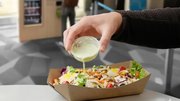Vending
Oregon operator survives COVID-19 aided by technology
Ryan and Michelle Harrington believe the pandemic underscored the importance of operating as efficiently as possible. To this end, they believe their ongoing investment in technology has been a key factor.
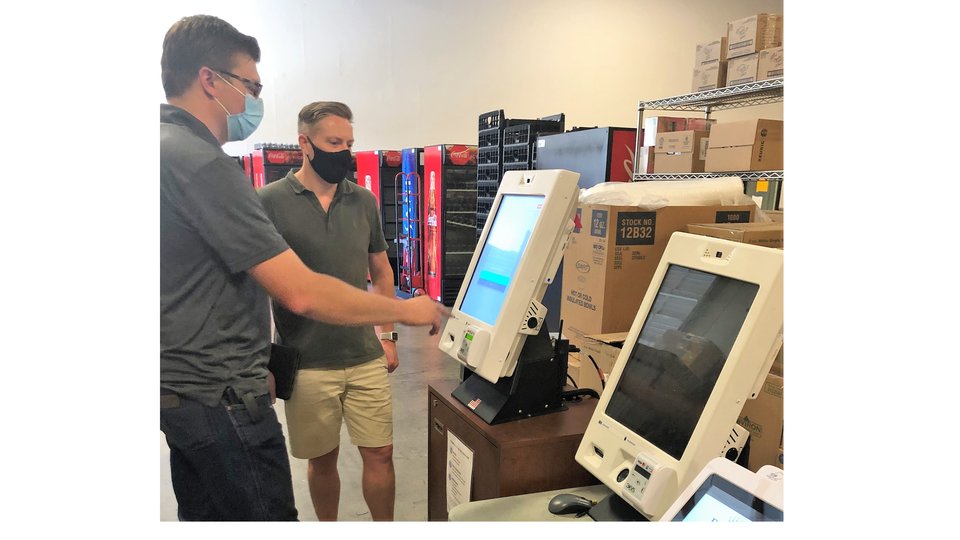
September 9, 2020 by Elliot Maras — Editor, Kiosk Marketplace & Vending Times
 |
| Ryan and Michelle have focused on technology from the beginning of the company in 2006. |
In retrospect, Ryan Harrington got into the convenience services business at a good time when he launched his part-time vending business in 2006. The technology revolution was taking hold, and innovations such as micro markets, dynamic routing and warehouse automation were in the early stages.
Harrington had the foresight to embrace technology from the beginning, and his Tigard, Oregon based company grew at a rapid clip, usually doubling its sales every year. The company, Royal Vending, was unique in that it pre-kitted its deliveries from the very beginning, using Microsoft Excel.
In 2009, Harrington's wife, Michelle, joined him and the business became their full time jobs.
Royal Vending has since been recognized by the Portland Business Journal as one of the fastest growing companies in Oregon for the past four years while Inc. Magazine recognized it as one of the fastest growing private firms in the country for the past three years. This year, the company ranked number 2,662 on the Inc. 5000 list, with a three-year growth rate of 152%.
Technology supports all aspects
Technology supports all aspects of the operation.
Vending management software has made it easy to cross train employees.
Every driver is trained in micro markets and OCS while some are cross trained in vending and pantry service. Some drivers focus more on one area than others, but all can step in and take over a vending route, a micro market route or work in the warehouse.
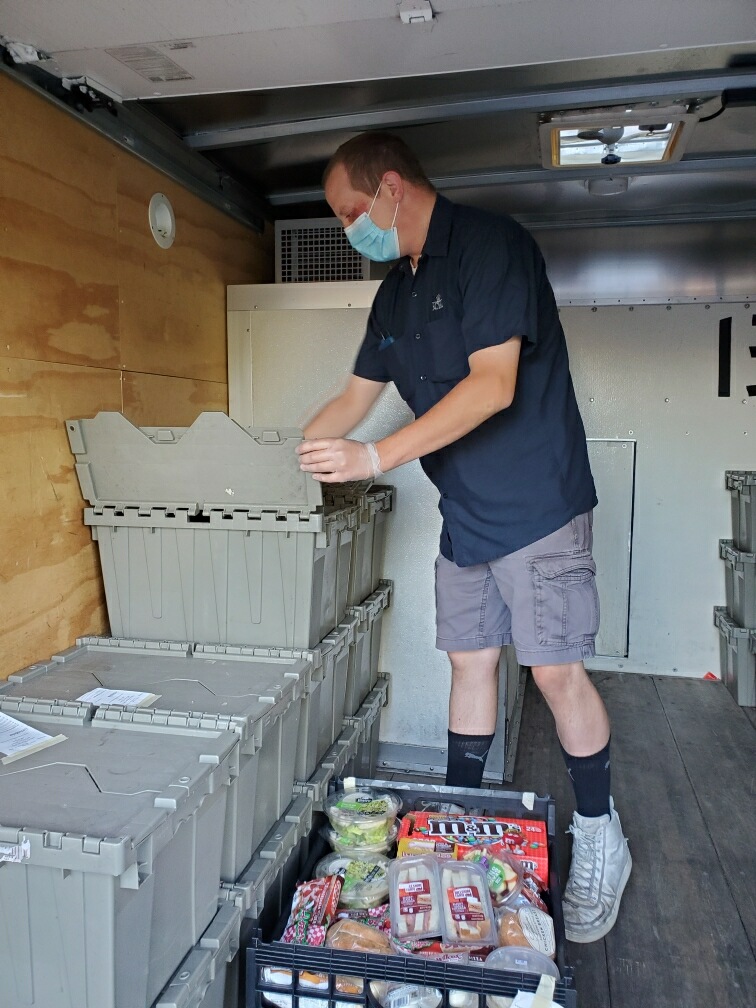 |
| A driver loads a truck. |
Dynamic routing, supported by Parlevel's vending management software, has enabled the company to optimize its labor and equipment assets.
Another important tool has been the automated warehouse picking system, which has improved the efficiency of the company's warehouse, ensuring the timeliness and accuracy of the company's deliveries to its vending machines and micro markets.
The automated picking system from LightSpeed Automation reduced picking time and improved accuracy.
Key focus: micro markets
Micro markets have been especially important to the company's growth. After expanding into micro markets about six years ago, the markets accounted for half of the company's sales within two years.
Sales at least doubled after converting a vending account into a micro market account, Ryan said, and some increased by as much as 500%.
Not only did micro markets allow the company to serve customers more products more economically. It also allowed them to expand into pantry services. Many locations in the Portland area wanted to provide food and beverages for their employees, but they did not want the employees to pay for it.
COVID-19 requires adjustments
Royal Vending took its share of losses from the COVID-19 pandemic when the state required some businesses to close in mid March. Ryan estimated the company lost about 40% of its business. Almost all of the pantry service locations and many of the OCS locations are closed or working from home, he said.
"We quickly implemented new internal safety protocols and procedures to keep our employees and customers safe," he said. "Before any mandates were passed down from our local government, we worked with our customers' unique safety protocols and remained nimble in order to ensure continuous service."
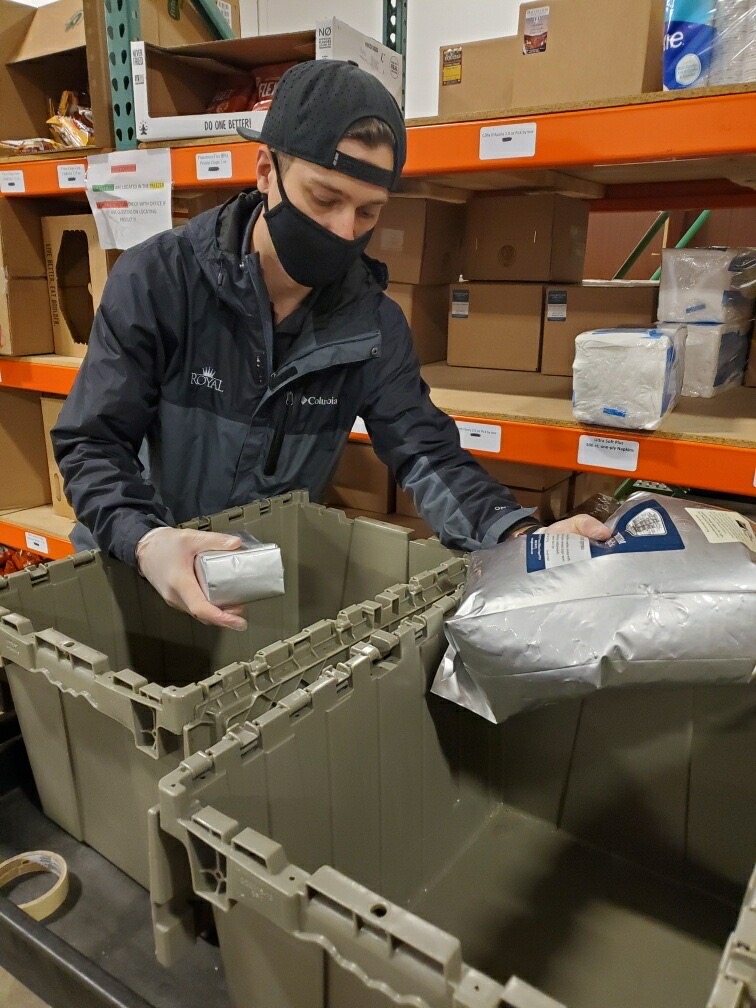 |
| A picker loads a tote. |
The company has utilized the touchless option from its micro market supplier, 365 Retail Markets. Customers can scan items to their kiosk cart and check out using various methods of payment, including the 365Pay app, scanning their market card, swiping their debit/credit card at the kiosk or using near field communication mobile wallets.
The company has also added touchless functionality to its Waterlogic water coolers. The coolers are retrofitted with pedals that allow the customer to select and dispense water using their feet.
There have not been any customer concerns raised about potential safety issues with either vending machines or micro markets. Even during the pandemic, the company has replaced some vending machines with micro markets.
Like other operators, the Harringtons have faced some difficulty sourcing products due to supply chain issues.
"We have experienced obstacles in keeping products in stock due to manufacturing issues," Ryan said. "We have found minimal alternative sources but we have purchased replacement items for products that have been difficult to keep in stock."
The Harringtons are using the business slowdown to work on a new marketing campaign. They are also exploring some different offerings and technologies. At some point, they hope to add an e-commerce store supported by their warehouse.
In recent weeks, business has begun to recover.
"Since then, our business has remained steady and we have seen an increase in some industries," he said.
The Harringtons believe the pandemic underscored the importance of operating as efficiently as possible. To this end, they believe their ongoing investment in technology has been a key factor.
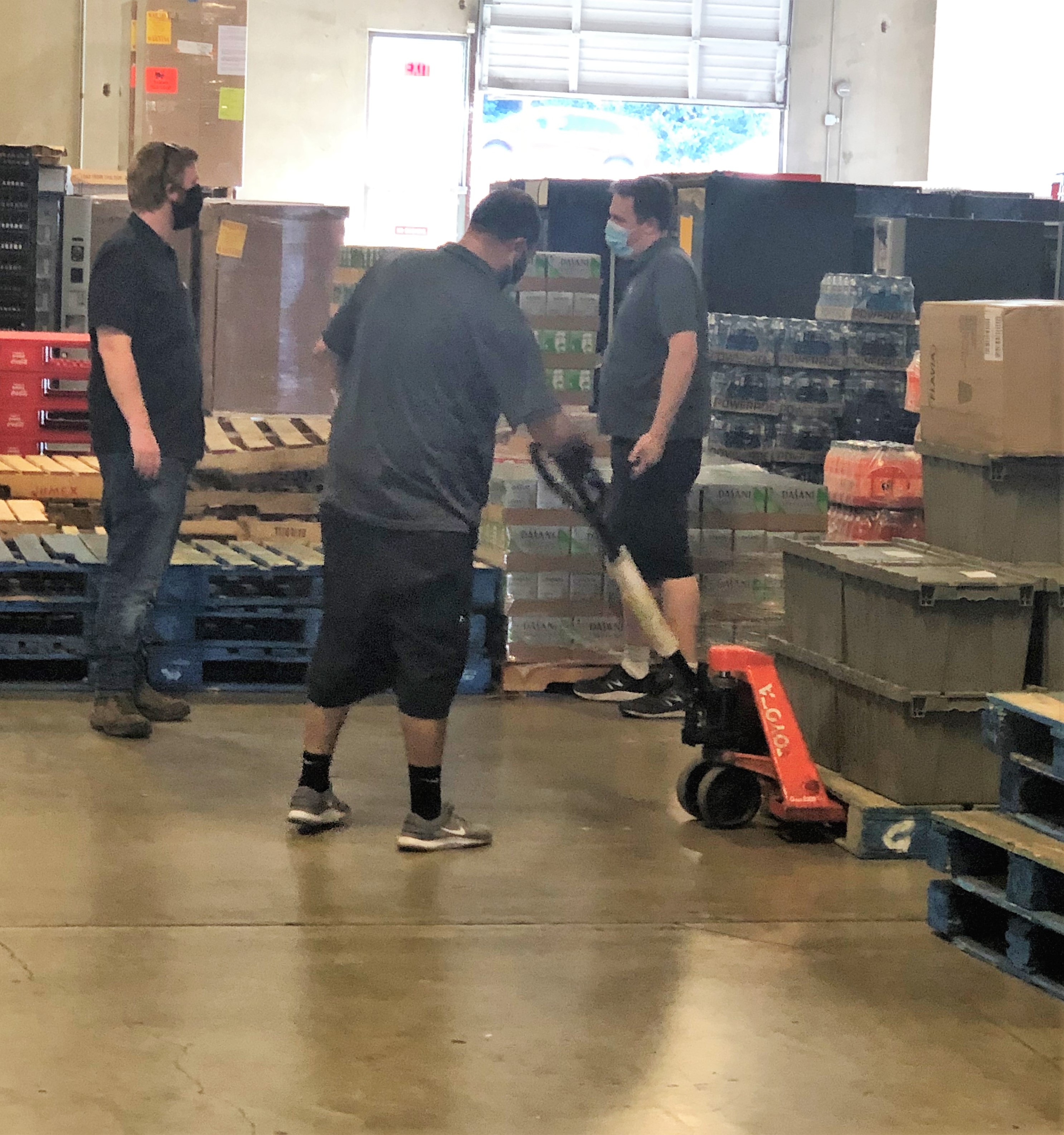 |
| Employees clean the warehouse. |
For an update on how the coronavirus pandemic is affecting convenience services, click here.
Photos courtesy of Royal Vending.
About Elliot Maras
Elliot Maras is the editor of Kiosk Marketplace and Vending Times. He brings three decades covering unattended retail and commercial foodservice.




